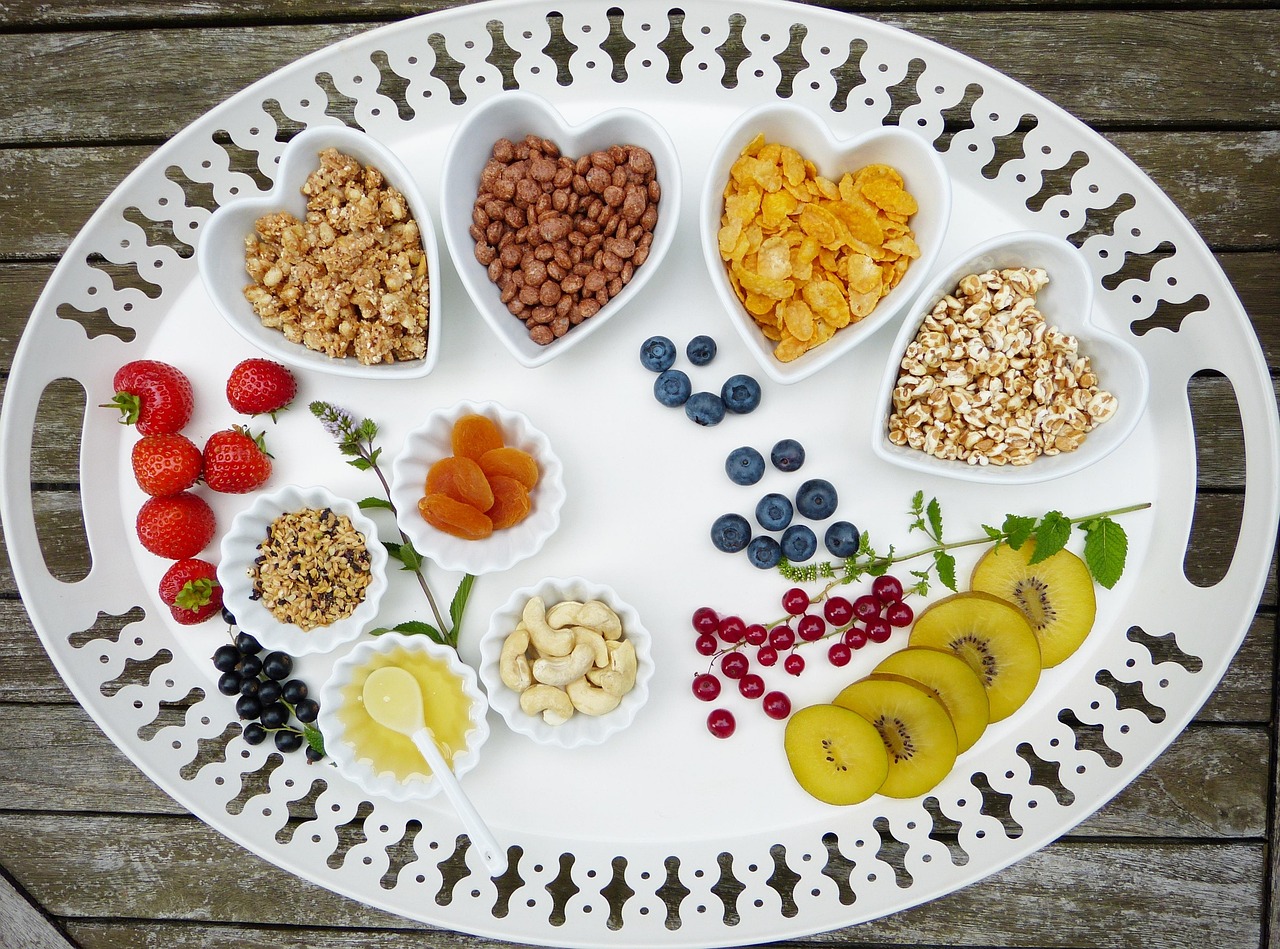
10 Gut-Healing Foods You Need for Better Digestion & Weight Loss
Imagine eating healthy and still gaining weight! Frustrating, isn’t it? It’s not just eating healthy that matters when it comes to weight loss. You need to make sure your gut is healthy, too.
If you haven’t paid attention to it, no worries, you’re not alone. Millions of people overlook one crucial factor in digestion and weight management: gut health.
In fact, research shows that your gut consists of over 100 trillion bacteria. Which is more than ten times the number of human cells in your body.
This internal system is known as the gut microbiome. It doesn’t just affect your digestion but also influences metabolism, mood, and even fat storage.
So if you have been figuring out why your belly isn’t flattened just yet, this might be the answer: poor digestion. The good news? Healing your gut doesn’t just require some fancy supplements or strict diets; it starts with eating gut healing foods.
Let’s take a look at powerful gut-healing foods that can help you feel lighter, happier, and more energized.
The Gut-Weight Connection You’ve Been Missing Out!
Before we dig deep into gut healing, it’s important to understand the link between gut and weight.
When your gut microbiome isn’t working properly, you’ll see poor digestion and rising inflammation. This might also result in bloating, constipation, and fatigue.
Worst case scenario? Some bacteria can actually trigger cravings for sugar and refined carbs, making weight loss even harder.
So, how does the healthy gut help?
- It helps break down and absorb nutrients efficiently
- It regulates appetite hormones like ghrelin and leptin
- It can help reduce inflammation (a hidden cause of weight gain)
- It supports better energy levels and metabolism
Studies suggest that people with a balanced gut microbiome have lower body fat percentages and more stable blood sugar levels. In short, a healthy gut helps you lose weight naturally.
10 Gut-Healing Foods You Need To Incorporate In Your Diet
Each of these foods has science-backed benefits for your digestion and metabolism. Try adding one or two to your routine each week for long-term results.
1. Yogurt: The Probiotic Powerhouse
Yogurt is the best source of probiotics. It contains the friendly bacteria that support digestion and nutrient absorption.
- Research from Harvard found that people who regularly eat yogurt tend to have lower body weight and fat gain over time.
- Choose plain Greek yogurt with live cultures to add your own fruit or honey to keep sugar low.
2. Kefir: The Gut-Boosting Drink
Think of kefir as yogurt’s drinkable cousin, but with even more probiotic strains. It can help balance gut bacteria, especially after antibiotics or digestive issues.
- It’s easier to digest than milk and may reduce lactose intolerance symptoms.
- Add kefir to smoothies or use it as a base for overnight oats.
3. Sauerkraut and Kimchi: Fermented Fiber for the Win
Fermented vegetables like sauerkraut and kimchi deliver more probiotics and fiber.
- Studies show fermented foods can increase microbial diversity in just a few weeks.
- Add a spoonful as a side to your lunch or dinner for a natural digestive boost.
4. Garlic: The Prebiotic Superfood
Garlic isn’t just for adding good flavor to your food, but it’s also a natural prebiotic. It means garlic can feed the good bacteria in your gut.
- Garlic is rich in inulin, and it encourages the growth of beneficial microbes like Lactobacillus.
- You can either use crushed or chopped garlic and let it rest for 10 minutes before cooking to activate its enzymes.
5. Onions: Gentle on the Gut, Great for the Microbiome
Onions contain fructooligosaccharides (FOS). It is another type of prebiotic fiber that helps good bacteria flourish.
- You can either have it raw in salads or lightly sauté it. Onions regulate blood sugar and promote fullness.
6. Bananas: (Especially Slightly Green Ones)
Green or unripe bananas contain resistant starch. It can help boost digestion and feed healthy gut bacteria.
- Bananas have numerous benefits for a healthy metabolism. It reduces belly fat and better bowel regularity.
- You can blend in half-green banana in a smoothie for a quick fiber boost.
7. Oats: A Gentle Source of Soluble Fiber
Oats are packed with beta-glucan. It is a type of soluble fiber that nourishes good bacteria and improves overall digestion.
- Studies show oats can lower bad cholesterol by up to 10 percent.
- There is no better way to start your day than with a healthy bowl of oats. To add more flavor, you can top it with chia seeds and yogurt for a gut-friendly breakfast.
8. Chia Seeds: Tiny Seeds, Big Impact
Chia seeds are an excellent source of fiber. It expands when mixed with liquid. It can keep you full longer while improving bowel movement.
- An excellent source of omega-3s and soluble fiber. It helps soothe inflammation in the gut lining.
- Mix with water, milk, or kefir to make a quick pudding.
If you’re avoiding chia seeds for some reason, then it’s best to try out some variations with hemp seeds in the pudding. Hemp seeds are also packed with fiber and protein, making them best for gut health.
9. Ginger: Nature’s Digestive Soother
For centuries, ginger has been used to relieve nausea, bloating, and poor digestion.
- It helps stimulate digestive enzymes and improve nutrient absorption.
- You can enjoy it as tea after meals to ease your stomach and support fat metabolism.
10. Bone Broth: The Gut Repair Remedy
Bone broth is rich in collagen, gelatin, and amino acids like glutamine. It is essential to repair the gut lining.
- It reduces inflammation, supports joint health, and promotes a strong digestive barrier.
- Sip it warm or use it as a base for soups and stews.
How to Incorporate These Foods into Your Day?
- You can start your morning with Greek yogurt, chia, and a banana for a healthy gut.
- Also, for lunch, it’s best to add garlic and onions to your stir-fry or soup.
- Include sauerkraut or kimchi as a side dish at lunch, too.
- Avoid snacking and replace it with a healthy kefir smoothie.
- For quick digestion? Have ginger tea or bone broth in the evening.
Lifestyle Habits That Support a Healthy Gut
Your gut thrives more on what you eat and your lifestyle. Incorporating simple daily habits can instantly make a huge difference:
- Sleep well: Aim for 7–8 hours; poor sleep can provoke gut bacteria.
- Manage stress: Chronic stress disrupts the gut-brain connection. Make sure you meditate in the morning to de-stress your body.
- Move daily: Exercise helps boost your gut motility and microbial diversity.
- Eat slowly: Chew thoroughly to improve digestion and reduce bloating.
The Bottom Line
A healthy gut is the foundation of a healthy body.
By nourishing your microbiome with the right foods, you can not only improve digestion but also boost your energy, mood, and metabolism.
Remember, small consistent changes lead to lasting results.
Start small and add one gut-healing food to your meals this week, and you’ll notice changes in your digestion and waistline.


